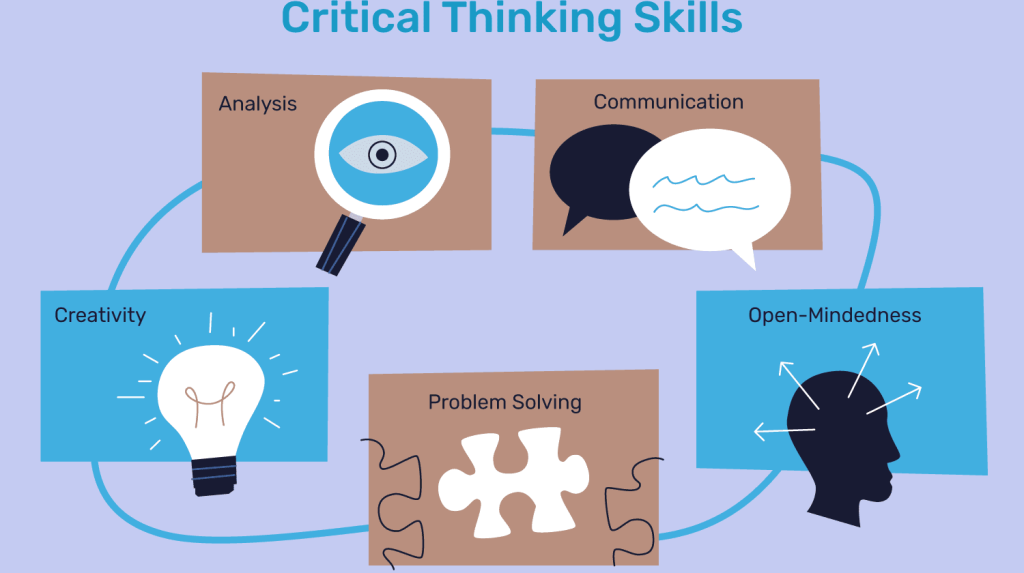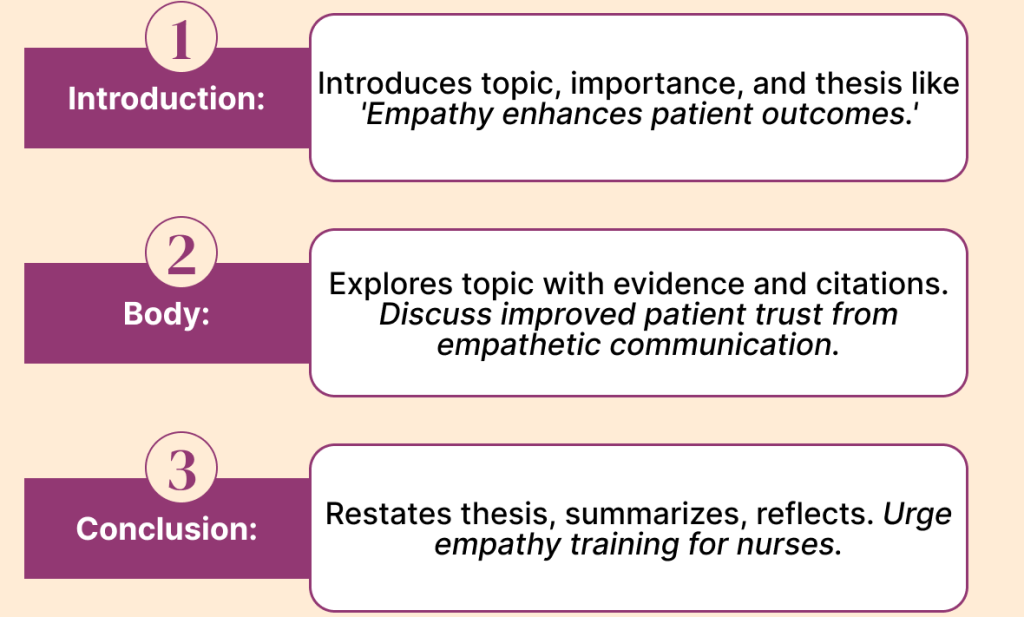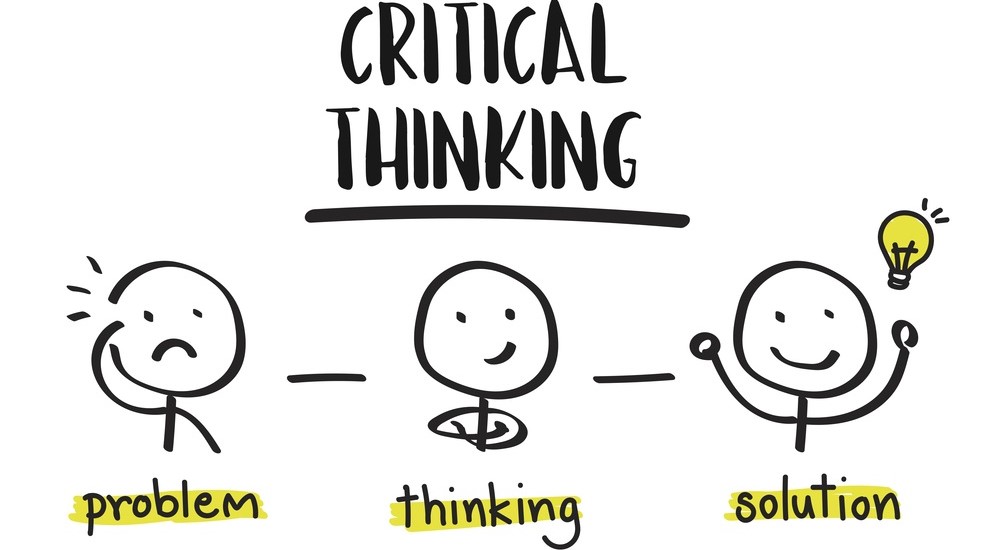
Table of Contents
The nursing critical thinking paper is a formidable task, demanding not only a deep understanding of nursing principles but also a mastery of clear, concise, and persuasive writing. It’s a chance to showcase your analytical prowess and demonstrate your ability to apply theory to real-world patient care scenarios. However, crafting a compelling nursing critical thinking paper can feel like navigating a complex labyrinth.
This guide aims to provide you with the necessary tools and insights to confidently traverse this path, emerging with a well-crafted and impactful nursing critical thinking paper.
Step-by-Step Guide to Crafting a Nursing Critical Thinking Paper
1. Understanding the Framework: Laying the Foundation for Your Paper
The foundation of a successful nursing critical thinking paper lies in understanding its core components. First, identify the specific topic or clinical scenario. This will serve as the focal point for your analysis. Next, analyze the critical thinking process. This involves identifying the relevant concepts, applying them to the scenario, and evaluating their implications. Finally, synthesize your findings to draw clear, reasoned conclusions.

2. Choosing Your Topic: Selecting the Right Path Through the Labyrinth
Choosing the right topic for your nursing critical thinking paper is crucial. The chosen topic needs to be relevant, engaging, and challenging enough to allow for in-depth analysis. Begin by considering your areas of interest within nursing. Do you find patient education particularly intriguing? Or are you passionate about ethical dilemmas in healthcare? These areas could lead to compelling topics.
Next, consider the scope of your paper. Is it a broad analysis of a common nursing challenge, or will you delve deeper into a specific clinical scenario? The ideal topic for your nursing critical thinking paper is one that allows you to explore the nuances of critical thinking in a meaningful and impactful way.
3. Research: Gathering the Necessary Tools for Your Journey
Research forms the bedrock of any compelling nursing critical thinking paper. The goal is to gather sufficient evidence to support your claims and demonstrate a thorough understanding of the subject matter. Utilize a variety of credible sources:
- Nursing textbooks and journals: These provide in-depth knowledge of nursing principles and current research findings.
- Clinical practice guidelines: These provide evidence-based recommendations for patient care.
- Case studies: Real-world scenarios offer valuable insights into the application of critical thinking in practice.
- Professional organizations: Resources from organizations like the American Nurses Association (ANA) offer valuable information and perspectives on nursing issues.
4. Building a Strong Argument: Weaving a Coherent Narrative
A compelling nursing critical thinking paper is not simply a collection of facts; it is a persuasive argument. Your goal is to present a clear and logical analysis of the chosen topic, using evidence to support your claims. This requires careful organization and a strong narrative structure.
a. Introduction: This section sets the stage for your paper by providing background information and outlining the topic. Clearly state your thesis statement, which is your central argument or point of view.
b. Body Paragraphs: Each body paragraph should focus on a specific aspect of your argument. Start with a topic sentence that introduces the main point of the paragraph. Use evidence from your research to support your claims and provide specific examples. Analyze the evidence, explaining how it supports your argument and drawing clear connections between theory and practice.
c. Conclusion: Summarize your key findings and restate your thesis statement. Highlight the significance of your argument and its implications for nursing practice. You can also suggest further research or action steps based on your findings.

5. Critical Thinking Skills: The Tools for Navigating the Labyrinth
The heart of your nursing critical thinking paper lies in the application of critical thinking skills. This involves actively engaging with the chosen topic, analyzing the situation, and evaluating potential solutions. Key critical thinking skills include:
- Problem identification: Recognize the problem or issue at hand.
- Analysis: Break down the problem into its constituent parts, identifying underlying causes and contributing factors.
- Interpretation: Analyze the available information, considering its validity and relevance.
- Inference: Draw logical conclusions based on the evidence.
- Evaluation: Assess the potential solutions, considering their feasibility, effectiveness, and ethical implications.
- Decision-making: Choose the best course of action based on a comprehensive analysis.
6. Incorporating the Nursing Process: A Guiding Framework for Nursing Critical Thinking Papers
The nursing process provides a clear framework for organizing your thoughts and presenting a coherent analysis in your nursing critical thinking paper. Apply the five steps of the nursing process to your chosen topic:
- Assessment: Identify and gather data about the patient or situation.
- Diagnosis: Analyze the data and identify the key nursing diagnosis or problem.
- Planning: Develop a plan of care with specific goals and interventions.
- Implementation: Carry out the plan of care and monitor the patient’s response.
- Evaluation: Assess the effectiveness of the interventions and adjust the plan of care as needed.
7. Writing Style: Ensuring Clarity and Impact in Your Nursing Critical Thinking Paper
A compelling nursing critical thinking paper demands clear, concise, and impactful writing. Here are some key tips:
- Use a professional tone: Avoid slang, jargon, or informal language.
- Write in the third person: Use “he,” “she,” “it,” or “they” when referring to patients or situations.
- Maintain objectivity: Avoid personal opinions or biases.
- Use precise language: Choose words carefully to ensure accuracy and clarity.
- Follow APA style guidelines: Ensure consistency in formatting, citations, and references.
8. Evidence-Based Practice: Grounding Your Paper in Scientific Evidence
Evidence-based practice is a cornerstone of modern nursing. In your nursing critical thinking paper, ensure your analysis is grounded in scientific evidence. This requires using credible sources and critically evaluating the evidence presented.
- Identify reliable sources: Look for sources published in peer-reviewed journals, reputable organizations, and government agencies.
- Evaluate the evidence: Consider the methodology used in the research, the sample size, and the strength of the findings.
- Apply the evidence: Use the evidence to support your claims and demonstrate how it applies to the chosen topic.
9. Ethical Considerations: Navigating the Moral Landscape of a Nursing Critical Thinking Paper
Ethical considerations are an integral part of nursing practice. When writing your nursing critical thinking paper, consider the ethical implications of the chosen topic.
- Identify ethical dilemmas: Explore the potential ethical conflicts and challenges in the scenario.
- Apply ethical principles: Utilize ethical frameworks, such as beneficence, non-maleficence, autonomy, and justice, to guide your analysis.
- Evaluate potential solutions: Consider the ethical implications of different courses of action.
- Advocate for ethical practice: Use your nursing critical thinking paper to promote ethical nursing care and advocate for patients’ rights.
10. Revision and Editing: Polishing Your Paper to Perfection
Once you have completed a draft of your nursing critical thinking paper, it is essential to revise and edit it thoroughly. This ensures clarity, conciseness, and accuracy.
- Read your paper aloud: This helps identify awkward phrasing, grammatical errors, and flow issues.
- Check for clarity and conciseness: Ensure that each sentence and paragraph contributes to your overall argument.
- Ensure accuracy: Verify that all facts, statistics, and citations are accurate.
- Proofread carefully: Correct any spelling, grammar, and punctuation errors.
11. Gaining Valuable Insights to Enhance Your Nursing Critical Thinking Paper
Seeking feedback from peers, professors, or other nursing professionals can significantly improve your nursing critical thinking paper.
- Ask for feedback on the clarity, logic, and persuasiveness of your argument.
- Seek advice on the quality of your evidence and the strength of your analysis.
- Incorporate constructive feedback to revise and refine your paper.
12. Presenting Your Paper: Sharing Your Work and Engaging Your Audience
Presenting your nursing critical thinking paper allows you to share your insights and engage your audience.
- Prepare a clear and concise presentation.
- Practice your presentation to ensure a smooth delivery.
- Use visual aids, such as slides or posters, to enhance your presentation.
- Be prepared to answer questions and engage in a thoughtful discussion.
Common Mistakes to Avoid in a Nursing Critical Thinking Paper
Crafting a successful nursing critical thinking paper requires not only understanding the core principles of critical thinking but also navigating a minefield of potential pitfalls. These mistakes can detract from your argument, weaken your analysis, and diminish the impact of your paper.
Here are some common mistakes to avoid when writing a nursing critical thinking paper:
1. Lack of Clear Focus and Argument:
- The Wandering Thesis: A weak or vague thesis statement leaves your reader confused about the paper’s purpose. Ensure your thesis is clear, concise, and explicitly states your central argument.
- Missing the Mark: Drifting away from the central thesis weakens the argument. Every paragraph should directly support your main point, and every piece of evidence should be relevant to the overall argument.
2. Insufficient or Unreliable Evidence:
- Anecdotal Evidence: While personal experiences can be compelling, they are not enough to support a strong argument. Base your analysis on evidence from reputable sources like peer-reviewed journals, clinical guidelines, and authoritative books.
- Cherry-Picking: Only selecting evidence that supports your pre-existing views creates a biased analysis. Present a balanced perspective by acknowledging opposing viewpoints and using evidence to refute them if necessary.
3. Poor Organization and Structure:
- The Disorganized Rambler: Lack of structure makes it difficult for readers to follow your argument. Utilize a clear and logical structure, with a compelling introduction, well-developed body paragraphs, and a strong conclusion that summarizes your main points.
- Paragraph Overload: Dense paragraphs with too much information overwhelm readers. Break down your analysis into manageable sections, with each paragraph focusing on a single idea or aspect of your argument.
4. Superficial Analysis and Application:
- The Surface-Level Skimmer: Simply stating facts or summarizing information doesn’t demonstrate critical thinking. Analyze the evidence, connect it to relevant nursing theory, and explain how it relates to the chosen scenario.
- Missing the Application: While theory is important, it must be applied to real-world scenarios. Show how critical thinking principles and nursing practice guidelines can be used to address the chosen topic.
5. Lack of Critical Evaluation and Reflection:
- The Uncritical Acceptor: Accepting information at face value without questioning its validity or limitations is a sign of weak critical thinking. Critically evaluate your sources, analyze their strengths and weaknesses, and discuss potential biases.
- Ignoring the “So What?”: The paper should not simply present information but also explore its implications for nursing practice. Reflect on the significance of your analysis and its potential impact on patient care.

6. Writing Style Mistakes:
- Jargon Overload: Too much technical jargon can make your nursing critical thinking paper inaccessible to a wider audience. Use clear and concise language, explaining complex concepts in a way that is easily understood.
- Passive Voice Overload: Excessive use of passive voice can make your writing sound dull and impersonal. Use active voice to create a more engaging and dynamic writing style.
7. Common Mistakes Specific to Nursing Critical Thinking Papers:
- Lack of Patient Focus: The nursing critical thinking paper should always center around the patient and their needs. Remember, the ultimate goal is to improve patient care.
- Ignoring the Nursing Process: Applying the nursing process framework can provide a clear and logical structure for your paper. Ensure each step is addressed and contributes to your overall analysis.
- Missing the Ethical Dimension: Consider the ethical implications of the chosen topic and explore any ethical dilemmas. This demonstrates a nuanced understanding of the complexities of nursing practice.
Frequently Asked Questions about Nursing Critical Thinking Papers
1. What is a nursing critical thinking paper?
A nursing critical thinking paper is a written assignment that requires you to analyze and evaluate a specific nursing situation, applying critical thinking skills to arrive at a well-reasoned conclusion. It’s not just about stating facts but about demonstrating your ability to think critically and make informed decisions based on evidence and patient needs.
2. What are the key components of a strong nursing critical thinking paper?
A strong nursing critical thinking paper will typically include:
- Clear statement of the problem or situation: Clearly describe the scenario you are analyzing.
- Relevant background information: Include patient history, vital signs, laboratory results, and other relevant data.
- Identification of key issues: Determine the most important factors influencing the patient’s care.
- Analysis of options and possible outcomes: Evaluate various nursing interventions and their potential consequences.
- Recommendation for a course of action: Justify your chosen intervention based on evidence and reasoning.
- Ethical considerations: Address any ethical dilemmas and their implications.
- Use of evidence-based practice: Support your recommendations with current research and best practices.
- Clear and concise writing style: Use correct grammar and spelling, with a focus on clarity and organization.
3. How can I improve my critical thinking skills for my nursing critical thinking paper?
Here are some tips to enhance your critical thinking abilities for your nursing critical thinking paper:
- Actively engage with the material: Read thoroughly, ask questions, and challenge your assumptions.
- Practice analyzing case studies: Work through different scenarios to develop your analytical skills.
- Utilize the nursing process: Use the framework of assessment, diagnosis, planning, implementation, and evaluation to guide your thinking.
- Seek feedback from instructors or mentors: Discuss your reasoning and receive guidance to refine your critical thinking skills.
4. What are some common mistakes to avoid in a nursing critical thinking paper?
- Lack of clarity or organization: Ensure your paper is well-structured and easy to follow.
- Insufficient evidence: Support your claims with research and relevant data.
- Overlooking ethical considerations: Address any ethical concerns related to the situation.
- Focusing solely on factual information: Emphasize your critical analysis and reasoning.
5. Where can I find resources to help me write a strong nursing critical thinking paper?
- Your nursing textbook: Consult your course textbook for examples of critical thinking in nursing practice.
- Professional journals: Read articles on relevant topics to gain insights into evidence-based practices.
- Online databases: Utilize databases like PubMed or CINAHL to access relevant research studies.
- Your instructor or mentor: Seek guidance and feedback from your professor or a qualified nurse.
The nursing critical thinking paper is an opportunity to demonstrate your ability to think critically and make informed decisions as a nurse. By focusing on clear communication, evidence-based practice, and ethical considerations, you can write a strong paper that reflects your critical thinking skills.
Embracing the Journey of Crafting a Compelling Nursing Critical Thinking Paper
Crafting a compelling nursing critical thinking paper is an opportunity to demonstrate your critical thinking skills, showcase your knowledge, and contribute to the advancement of nursing practice. By following these guidelines, you can navigate the labyrinth of writing this type of paper and emerge with a well-crafted and impactful piece.
The journey itself is a valuable learning experience, allowing you to develop your critical thinking skills and deepen your understanding of nursing. So, embrace the challenge, embark on this journey, and let your nursing critical thinking paper be a testament to your dedication to the profession.
Get Custom Nursing Critical Thinking Paper Writing Help
In case you need help with writing a nursing critical thinking paper, simply place an order with us at Nursing Papers. We offer professional nursing paper writing assistance for essays, case studies, research paper and dissertations. We can help you with topic suggestion, paper writing, proofreading and plagiarism removal.







